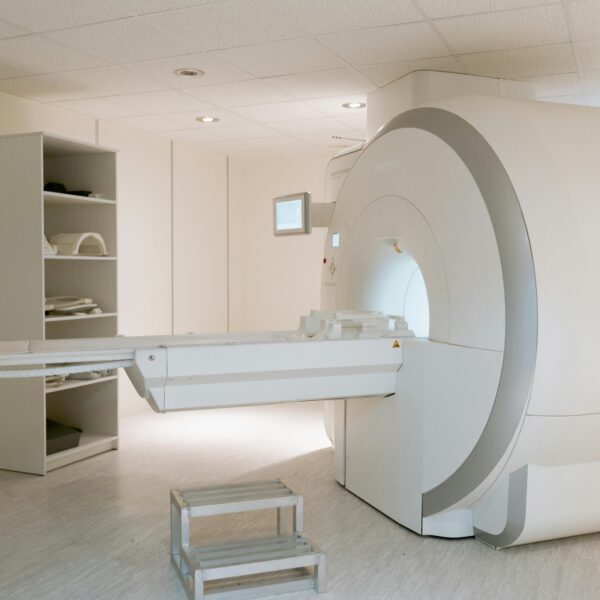Non-traditional nursing roles offer a diverse range of opportunities for healthcare professionals who are looking to explore alternative career paths. These roles go beyond the traditional hospital setting and allow nurses to apply their skills in unique and fulfilling ways. Non-traditional nursing roles present exciting opportunities for nurses who desire autonomy, variety in their careers, flexibility in scheduling, specialization within healthcare fields while also enjoying potentially higher earnings. These unique positions allow nurses to leverage their skills and experience outside of traditional hospital environments while making an impact on patient care and healthcare systems in different ways.
1. Legal Nurse Consultant
Setting: Legal Offices
What: A legal nurse consultant is a registered nurse who uses their medical expertise to assist attorneys and other legal professionals in cases involving medical issues. These professionals bridge the gap between the healthcare and legal fields, utilizing their knowledge of nursing practices, medical records, and healthcare regulations to provide valuable insights and support during litigation.
Daily Duties: In this unique role, legal nurse consultants analyze medical records, identify potential issues or discrepancies, conduct research on relevant medical topics, and offer expert opinions based on their clinical experience. They may also assist with preparing witnesses for trial or deposition testimony and provide assistance in understanding complex medical terminology.
Requirements: To pursue this career path, nurses often acquire additional training or certifications specific to legal nurse consulting. These programs equip them with the necessary skills in areas such as reviewing medical records for potential malpractice cases, understanding healthcare regulations, and providing expert testimony.
2. Nurse Educator
Settings: Educational Settings (nursing schools, colleges, universities, and healthcare institutions)
What: The primary responsibility of a nurse educator is to provide instruction and guidance to aspiring nurses. They develop and implement educational programs that equip students with the necessary knowledge and skills to excel in their nursing careers.
Daily Duties: Nurse educators are not only responsible for classroom teaching but also for designing curriculum, developing learning materials, and evaluating student performance.
Requirements: Further education is necessary to pursue a career as a nurse educator. Many individuals pursue advanced degrees such as Master of Science in Nursing (MSN) or Doctorate in Nursing Education (DNP/Ph.D.) to enhance their knowledge in teaching methodologies, curriculum development, research techniques, and leadership skills.
Apart from formal education credentials, strong communication skills are vital for effective teaching. Nurse educators must be able to convey complex medical concepts clearly while adapting their teaching methods to accommodate diverse learning styles.
3. Forensic Nurse
Setting: When it comes to their work setting, forensic nurses can be employed in a variety of settings. These may include hospitals, emergency rooms, community health clinics, sexual assault response teams (SARTs), correctional facilities, or medical examiner’s offices.
What: Forensic nursing is a specialized field within nursing that combines the knowledge and skills of healthcare with the principles of law enforcement and forensic science. Forensic nurses play a crucial role in supporting victims of crime, collecting evidence, and providing expert testimony in legal proceedings.
Daily Duties: Crime scene investigation is an integral part of a forensic nurse’s role. They are collect evidence from victims that may be relevant to criminal investigations. This includes documenting injuries or identifying signs of abuse or violence. They work closely with law enforcement agencies to ensure that all necessary evidence is collected properly and preserved for legal purposes.
Requirements: To become a forensic nurse, certain requirements must be met. Typically, individuals interested in this field must first complete their registered nurse (RN) education and obtain licensure. Some nurses choose to pursue additional certification or specialized training in forensic nursing through programs offered by professional organizations such as the International Association of Forensic Nurses (IAFN). Certification options may include Sexual Assault Nurse Examiner (SANE) or Forensic Nurse Specialist (FNS).
4. Pharmaceutical Sales Rep
Setting: travelling within the healthcare industry, representing their company’s products to healthcare providers such as doctors, nurses, and pharmacists.
What: Pharmaceutical sales representatives serve as liaisons between pharmaceutical companies and healthcare professionals to promote pharmaceutical products.
Daily Duties: The main responsibility of a pharmaceutical sales rep is to promote and sell their company’s medications or medical devices to healthcare professionals. They build relationships with potential clients, provide product information and samples, and educate healthcare providers on the benefits and usage of their products.
Requirements: To become a pharmaceutical sales representative, a background in nursing can be advantageous. Nurses have valuable clinical knowledge and understanding of medical terminology that can help them effectively communicate with healthcare providers. However, specific requirements may vary between companies.
Generally, aspiring pharmaceutical sales reps need excellent communication skills, strong interpersonal abilities, and a convincing sales pitch. They should possess a deep understanding of the products they represent as well as the ability to stay up-to-date with advancements in the field. A bachelor’s degree, preferably in life sciences or business-related disciplines, is often required by employers.
5. Cruise Ship or Resort Nurse
Setting: Cruise ships or resorts all over the world
What: These professionals provide healthcare services to passengers and staff in the maritime or resort industry. A cruise ship or resort nurse plays a vital role in ensuring the well-being of individuals in these settings.
Daily Duties: The responsibilities of a cruise ship or resort nurse are diverse and encompass providing medical care, emergency response, health promotion, and disease prevention. They are responsible for assessing and treating injuries, illnesses, and medical emergencies that may occur onboard a cruise ship or within a resort facility. This can range from minor ailments like seasickness or sunburns to more serious conditions that require immediate attention.
In addition to their medical duties, cruise ship or resort nurses also play an important role in health education. They conduct health screenings, deliver presentations on various topics such as hygiene practices, sexual health awareness, and promote general wellness among passengers and staff members alike.
Requirements: To become a cruise ship or resort nurse, there are some additional requirements beyond the typical nursing qualifications. First and foremost, having previous experience in emergency medicine or critical care is highly beneficial due to the unpredictable nature of medical incidents that may arise while at sea or within a resort setting.
Furthermore, nurses aspiring to work on cruise ships should possess excellent communication skills as they will be dealing with individuals from diverse backgrounds and cultures. Adaptability is also crucial as they will be working in an ever-changing environment with limited resources at times.











